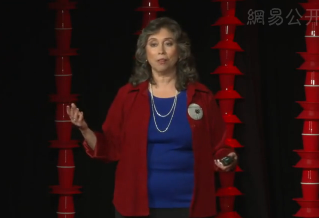Again, we didn't start out thinking, "Oh, let's invent a language."
我們開始想:“對了,我們干脆發明一種語言吧?!?/div>
It was just very confusing. I remember somebody walked up to me and said,
剛開始真的非常的混亂。我記得有人走過來對我說:
"I would like to do this activity on the vehicle tomorrow, on the rover."
“我明天要在漫游者上做這個任務。”
And I said, "Tomorrow, tomorrow, or Mars, tomorrow?"
我就問:“明天,地球的明天還是火星的明天?”
We started this terminology because we needed a way to talk to each other.
我們開始想一些專有術語,否則我們都沒法交談了。
Tomorrow became "nextersol" or "solorrow."
于是“明天”變成了“nextersol”或是“solorrow”。
Because people have different preferences for the words they use.
畢竟人們用詞各有所好。

Some of you might say "soda" and some of you might say "pop."
有些人說“蘇打”,有些人說“飲料”。
So we have people who say "nextersol" or "solorrow."
所以我們有人說“nextersol”,有人說“solorrow”。
And then something that I noticed after a few years of working on these missions,
在這個項目工作幾年后,我發現
was that the people who work on the rovers, we say "tosol."
運行漫游者的人說“tosol”。
The people who work on the landed missions that don't rove around, they say "tosoul."
處理陸地工作的,不接觸漫游者的人,他們說“tosoul”。
So I could actually tell what mission you worked on from your Martian accent.
所以我都能從工作人員的“火星口音”中推斷出他的工作。











